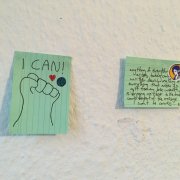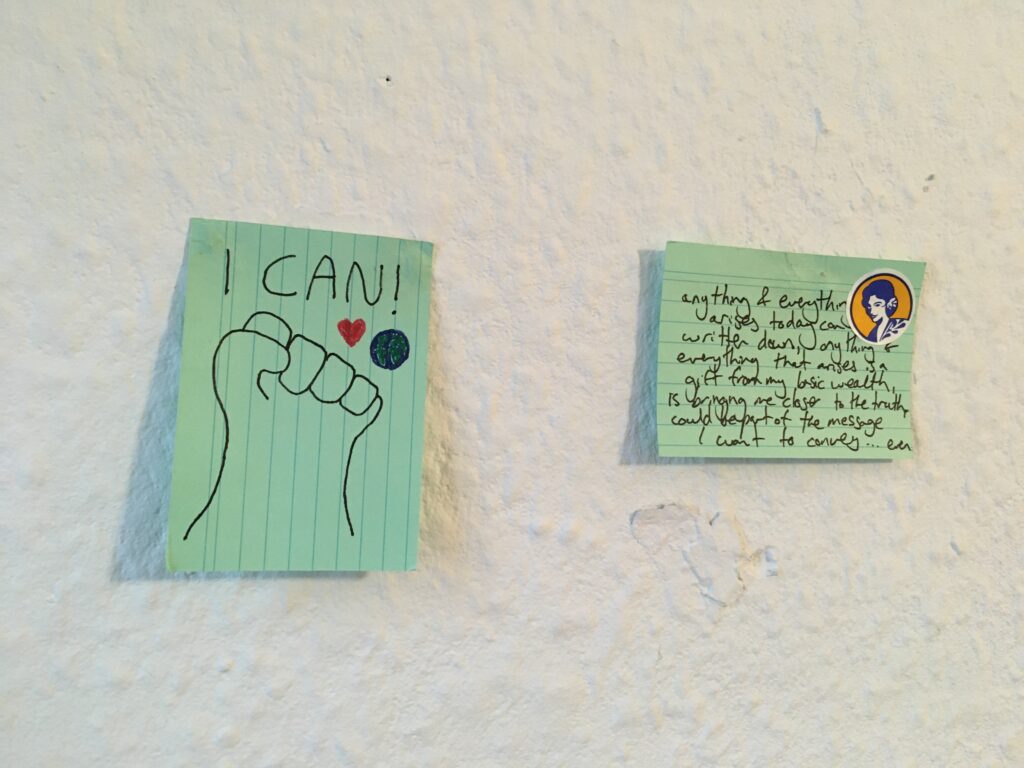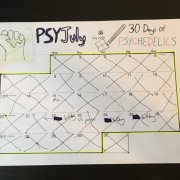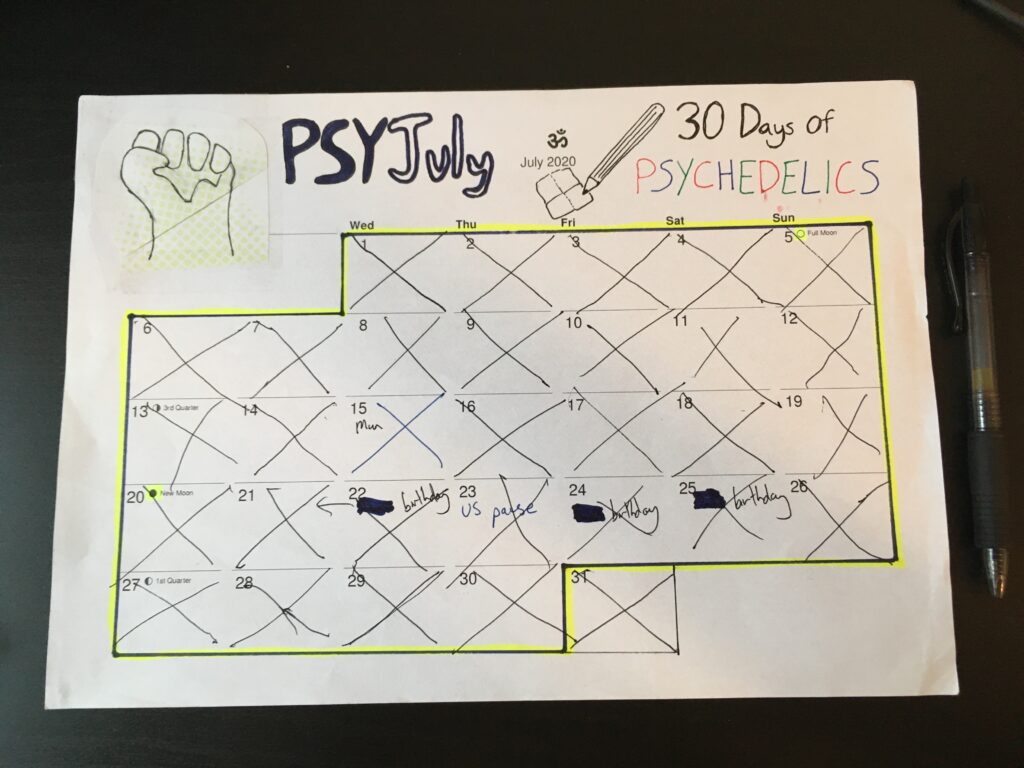When it comes to learning and growing from our psychedelic experiences, we need to do more than simply take the substances and expect all the magic to happen.
We need to utilise other methods in our preparation and our integration for these experiences.
Different methods can help set us up for insightful experiences, and then maximise benefits and keep us on a path of learning and growth. There are many, and some popular ones include: mindfulness, yoga, breathwork, and nature immersion.
Another one of the big boys is journaling.
This is because journaling can help with self-reflection, emotional processing, and integrating insights.
As such, journaling is one of the best things one can do to support their psychedelic-assisted growth.
So, how does it work? What are the benefits? And how can you get started today?
In this blog post, I will be talking about the benefits of journaling and how they work synergistically with psychedelic processes. Then I will be offering you a few different journaling methods to support your psychedelic-assisted growth. I will also add a few tips on each so that you can start journaling today.
My intention with this blog post is to highlight the benefits of journaling in the hopes that you might be inspired to try it yourself and to give you some concrete examples of things that you can do so you can get started today.
Let’s dive in.
Benefits of Journaling and Psychedelic Processes
Writing pen to paper forces us to slow down. Simply by taking the time to write out our thoughts and feelings, journaling offers us the chance to be aware of what makes up our inner world. We can see things from inside ourselves, quite literally, on the paper in front of us, giving us an increased awareness of them. And with that, we also have an opportunity to reflect on them.
By allowing us to see what is on our minds and gain a deeper understanding of ourselves, journaling might even be considered psychedelic — if we are going by the literal meaning of the word: mind-revealing.
As such, it is an excellent tool to synergise with our actual psychedelic experiences.
Journaling can be a way to integrate a more reflective and aware way of being in our days—what we might call a psychedelic way of life. It also helps clear the mind—like mental decluttering—and has been shown to have emotional effects such as reducing anxiety. Both of these effects are also going to be beneficial when we are in the preparation stage of our psychedelic experiences.
After our experiences, journaling can help us in our integration as well. Beyond documenting them, writing about our experiences gives us a chance to further unpack them, dig out insights, and solidify them. With insights unpacked, we also have an opportunity to make plans and move forward in the integration process.
To summarise, some of the benefits of journaling related to psychedelic use include:
- Promotes self-awareness
- Enhances awareness of thoughts and feelings
- Provides opportunities for reflection
- Aids in clearing the mind and reducing anxiety
- Helps in planning sessions and logistical details
- Assists in documenting experiences and unpacking insights
- Facilitates integration of insights
- Facilitates further reflection and planning for integration
Journaling Methods to Support Psychedelic Processes
Ready to start journaling?
Here are a few different styles of journaling that you can try today.
1. Free Writing (Basic Journaling)
This is the most basic. In the simplest terms; put pen to paper and start writing.
To gain a better understanding of yourself and your emotions, try not to focus only on things that you have done or things that you see, but write about your thoughts and your feelings.
Write about what is on your mind and use that as a starting point to write further reflections and observations.
Write about your feelings. You can write about your feelings in the moment or in different situations or significant moments in your day or life. You can write about any instances where certain feelings were triggered.
And it is as simple as that. It does not matter if what you write is petty. It does not matter if it seems boring or nothing special. Just the process of writing will help get things out and that process will help you to reflect and introspect.
One way of incorporating this method is the morning pages. The morning pages, as originally described in The Artist’s Way—Julia Cameron’s classic book on creativity— are three full A4 pages of longhand journaling each morning. Again, about anything. Just get pen to paper and write until you fill the pages.
I have found this three full pages method to be an extremely useful practice. If I have something niggling away at me or I feel like I have too many things on my mind, I find that taking time to sit down and write my thoughts out is extremely clarifying, improves my emotional state, and gives me some actionable items to move forward.
Tips for starting a free writing journaling practice:
- Get a nice pen and journal or pad that feels nice to write with. This will help make the process more enjoyable.
- Keep the journal private so that you know that it is a safe space for you to be able to fully express yourself without fear of judgement or any kind of repercussion from anyone else.
- Remember to write your thoughts and feelings, not just objective facts.
- It can be helpful to ask yourself questions. Think about questions that a coach or therapist would ask you. Or use them to direct them back to your values.
2. Writing Letters
Often, the difficulties or problems we have in our lives come from our relationships. As social creatures who have evolved with the need to successfully socially engage to survive, it is no surprise that relationships can be the source of difficult emotions.
Sometimes in our psychedelic experiences, insights may come to us about our relationships with others. Or it might be the case that our intention for an experience is a relational issue that we are looking to process emotions around and resolve.
Writing letters to other people can be hugely helpful in supporting these processes.
The beauty of the exercise of writing letters to other people is that you have a safe space to express your emotions without necessarily having to send those letters to the people you are writing them to.
Just the process of writing letters can help us to become more aware of our feelings and offer a lot of therapeutic value. This can be done both in preparation and integration of an experience, depending on where it is most relevant for each person. In both cases, it can again help to process emotions and gain mental clarity.
Tips for Writing Letters to Others
- It is usually most useful to focus on people you have some difficult emotions around.
- Be completely uncensored. If there is anger, if there is pain, if there is frustration, allow yourself to feel it, and express it in the letter. Remember, you do not need to send it to them. Just let it out, and put it down on paper.
- If you decide that it would be good to send the letter or message you have written, you might like to make some revisions. Go back once the heat is off and think about your wording and how you would like to communicate. You might consider something like non-violent communication.
- Consider using the following questions as prompts for your letter: What would you really like to say to them? What would you like them to know? If you were going to die next week, what should not be left unsaid?
- If you want to share anything from your letter in person, you can use a bulleted version of your letter for reference.
3. Writing Letters to Self
Writing letters to yourself can also be a very useful exercise.
By somewhat externalising ourselves and seeing ourselves as another person, we can get a different perspective on our problems and a new level of awareness around them.
Often it is hard for us to have perspective on our own problems because we are too close to them. It can be the case that if somebody else were to come to us with our problems —the exact same ones—we could easily dole out the perfect advice and tell them what to do.
As the quote goes:
“Wisdom is the ability to take your own advice.”
Letters to self can also be a means of exploring your inner dialogue by writing letters to different aspects of yourself—for example, the inner child, the inner critic and your higher self. This way of seeing ourselves as made up of many separate selves or parts, and communicating with them, is fundamentally the same as popular and effective psychological techniques used in parts work and Internal Family Systems.
Letters can also be written to our past and future selves. This can give you a chance to reflect on your journey and to look forward.
Tips for Writing Letters To Yourself
- When writing a letter to your present self, try imagining it is a good friend. Consider: What do they (you) need to hear right now? What advice, encouragement or support would you offer to someone in your situation at this moment?
- If writing a letter to your future self, express your hopes, dreams and intentions.
- When writing to different parts of yourself, such as your inner critic, consider making the letter a dialogue. Ask the part what it wants and write responses from it.
Trip Reports
Writing trip reports is, I would argue, an essential aspect of integrating psychedelic experiences. I would not say that everyone needs to do it, but I will say that most people would likely benefit from doing it.
Firstly, trip reports are great for documenting your experiences and your journey over time. Beyond that, the process of writing them offers a chance to revisit and remember the experience, refresh the memory, and consolidate it further, along with any insights and lessons.
Writing reports also offers a chance for further emotional processing. It is not uncommon that I will be brought back to tears when I am re-listening to the playlist and writing up my report.
Tips for Writing Trip Reports
- Start with basic objective details: setting, dosage, people present, time of the session, etc.
- Write an open-ended report about your subjective experiences. Write about thoughts, feelings and perceptions.
- Allow yourself the freedom to further reflect and riff on anything that comes up.
- If you listened to music during your experience, try listening to the same music again when you are writing your report. It can be extremely effective in taking you back to the experience.
Final Notes and Tips
I hope this gives you some ideas and concrete examples of ways that you use journaling. However, it is not always easy to get started. Common barriers to journaling include perfectionism, self-censorship, or lack of time. To combat these, I will finish with some final tips:
- Allow your journaling to be imperfect. Allow it to be rubbish.
- You do not need to read your entries back. Remember that by putting pen to paper, you are doing it. The process itself will be helpful.
- Allow yourself freedom of expression. When you are writing, do not think about sharing your deepest feelings or forbidden thoughts with anyone else. Keep your journal a free space where you can say absolutely anything
- Start small. Try to find the time in your daily, weekly, or monthly routine when you can do it.
Final Thoughts
Journaling can increase self-awareness, improve emotional states, and facilitate introspection and reflection. For these reasons, it can be a great synergistic practice to pair with intentional and growth-oriented psychedelic exploration.
I have found journaling to be one of the most transformational and supportive practices to use alongside psychedelics, helping to bring about more valuable and beneficial experiences and also aiding in their integration.
I hope this post has inspired you to try journaling and given you some useful prompts to get started today.
Stay safe. Keep journaling.








